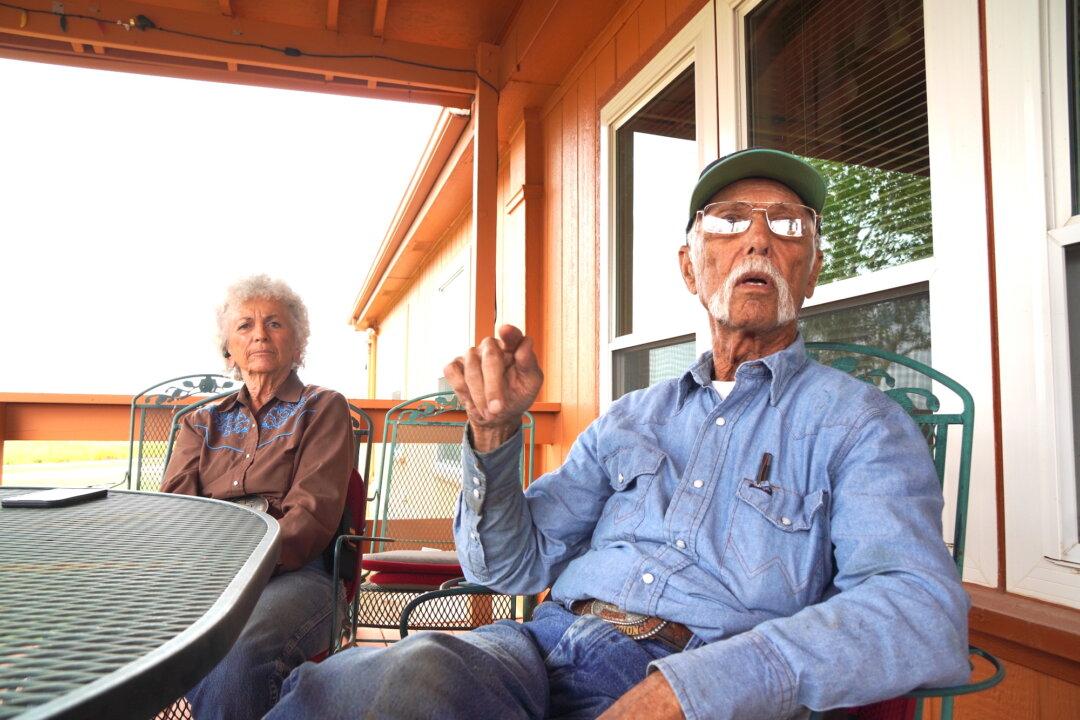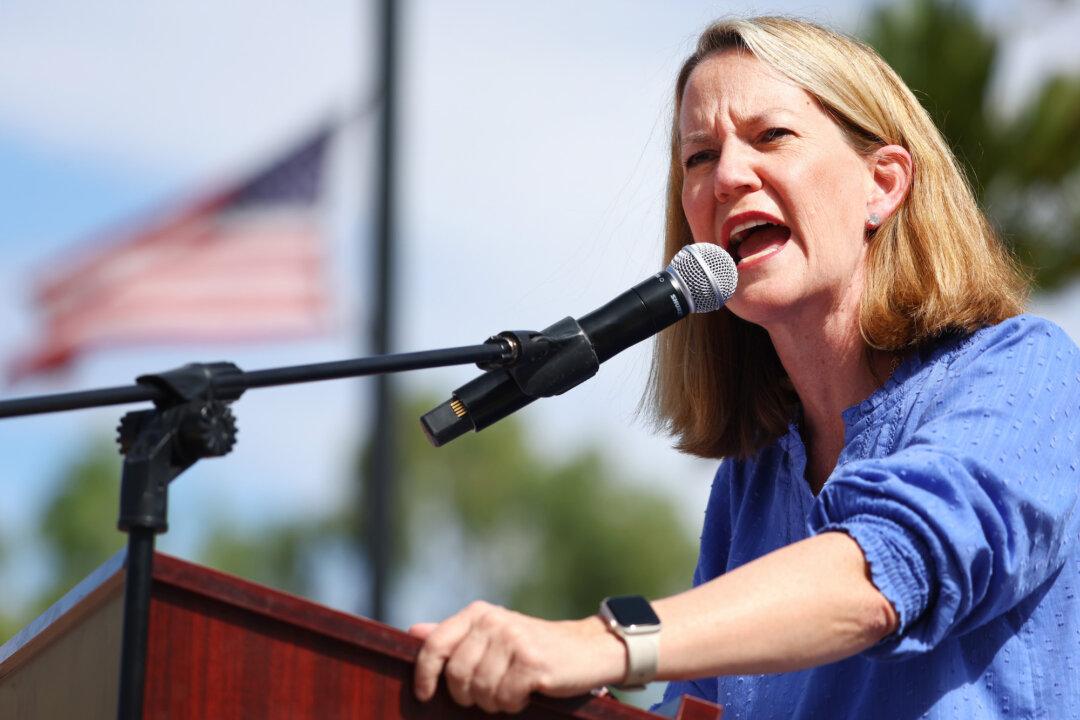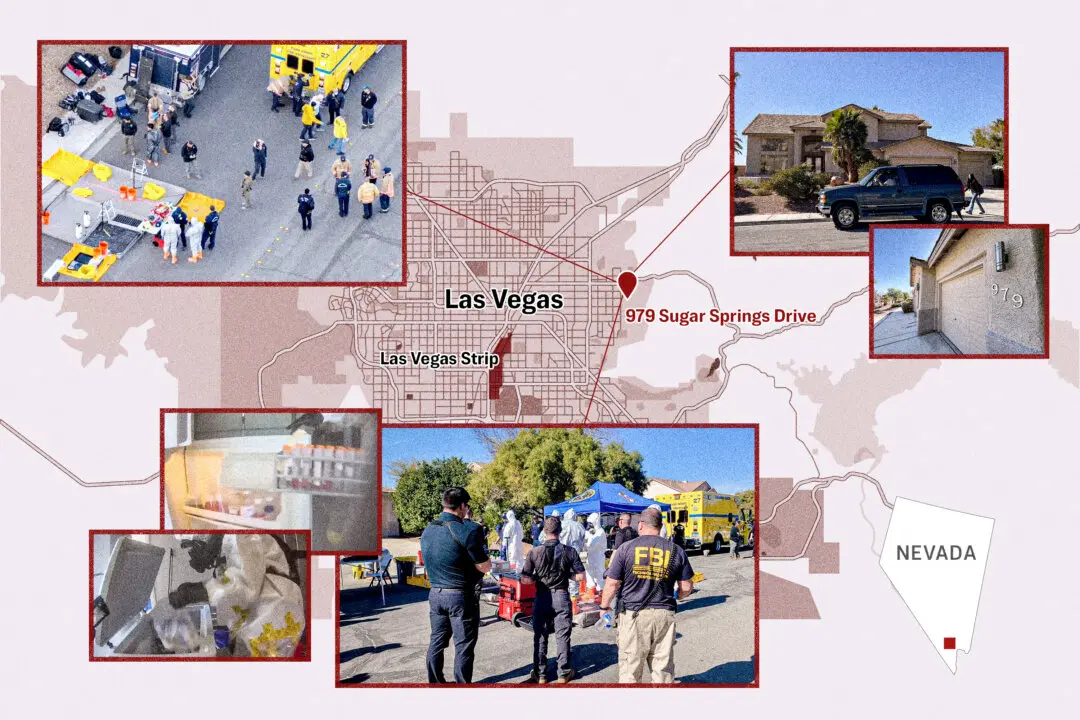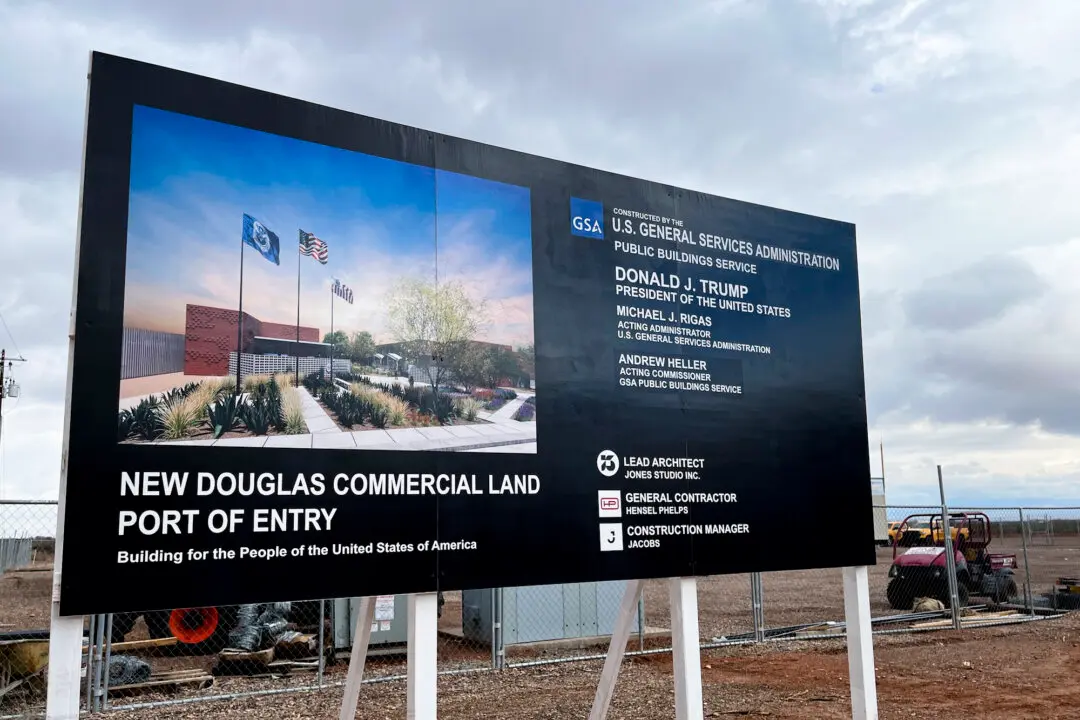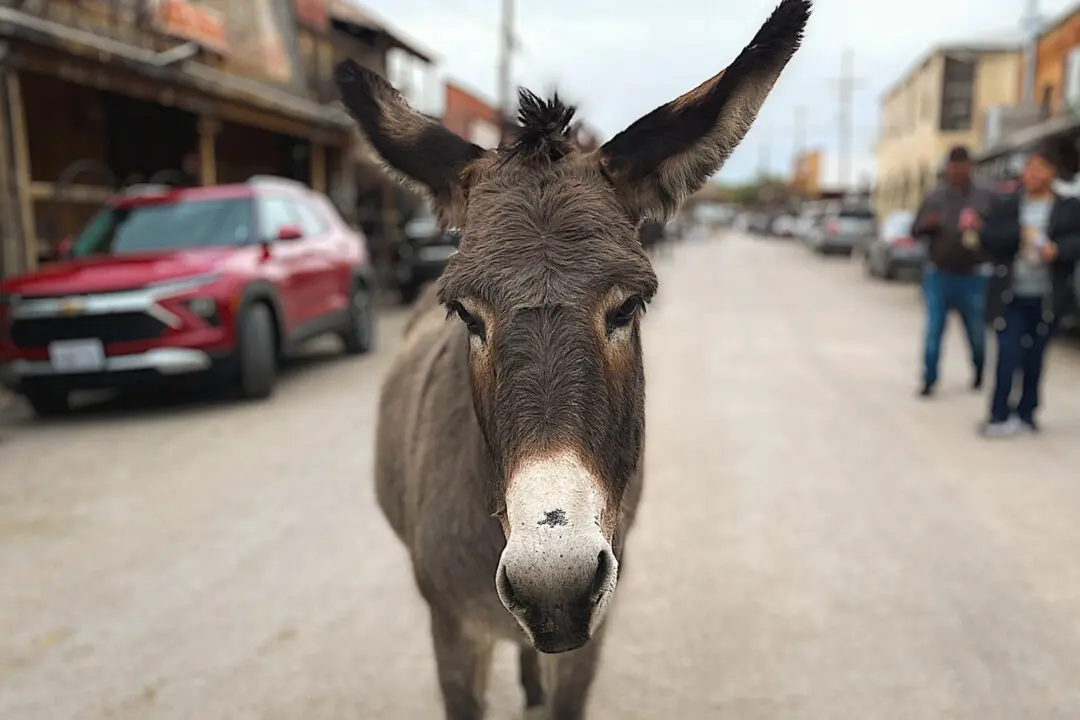This is the third article in a series on illegal drug and human smuggling along Arizona’s border with Mexico.
PALOMINAS, Ariz.—Cattle ranchers Joe and Patty Scelso didn’t always feel the need to carry sidearms walking on their property.Twenty-eight years ago, the Rockin JP Ranch was their dream of a country homestead come true—103 acres of lush grassland, towering cypress, and low-slung mesquite framed with distant green mountain peaks.
